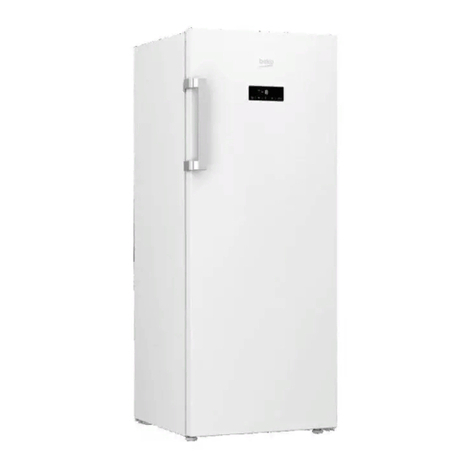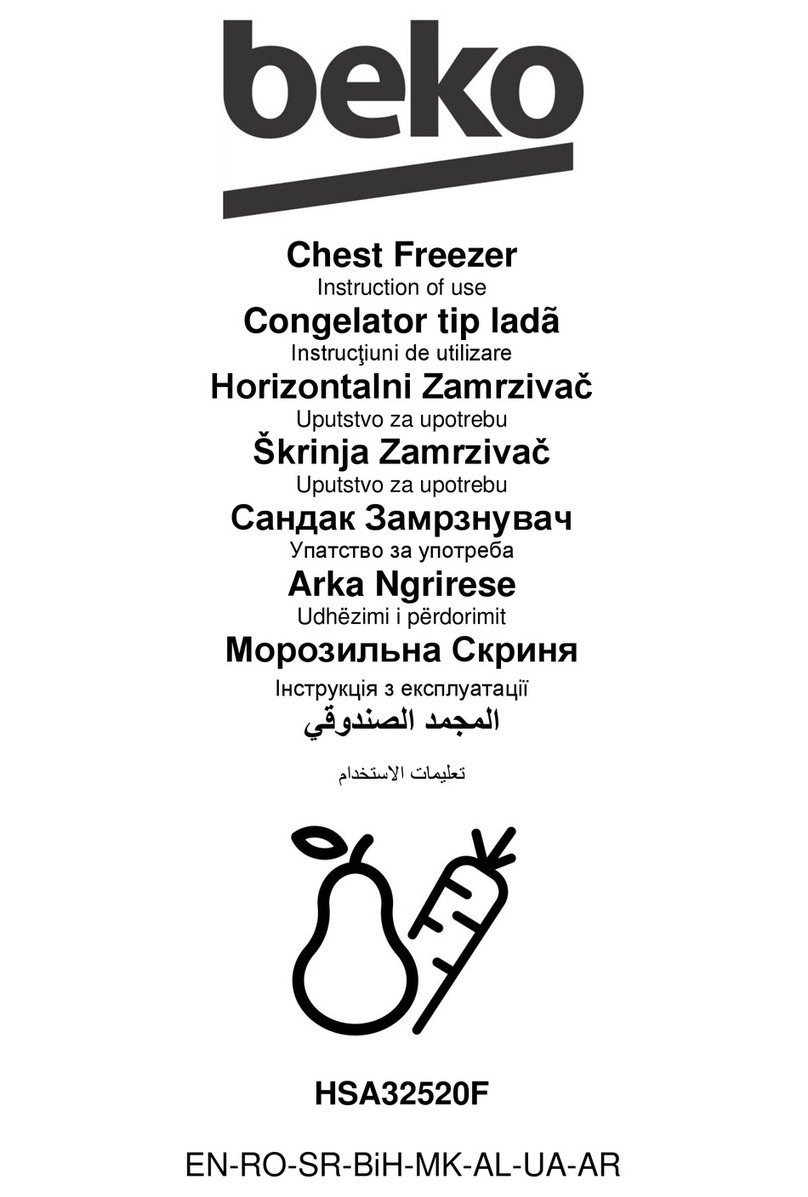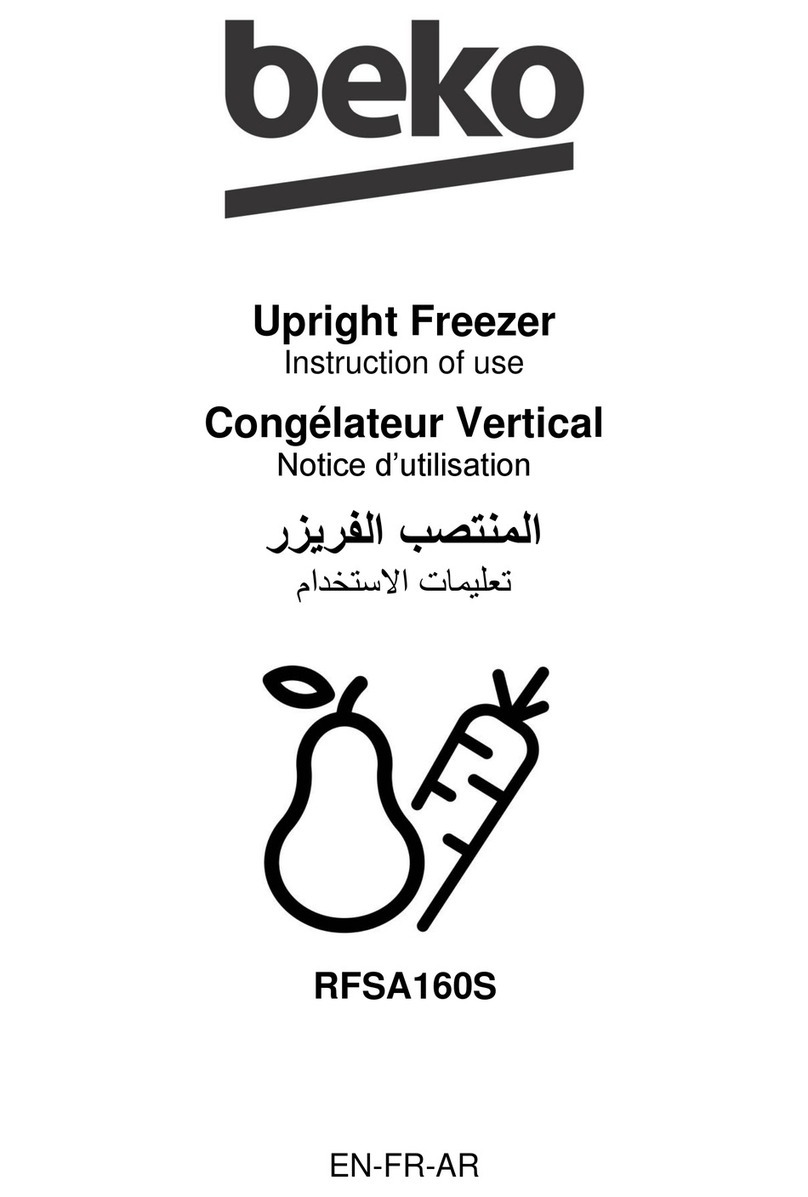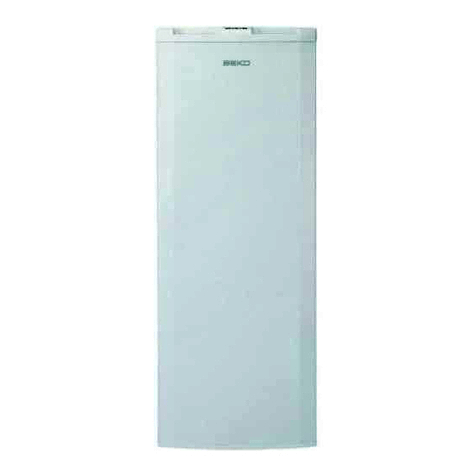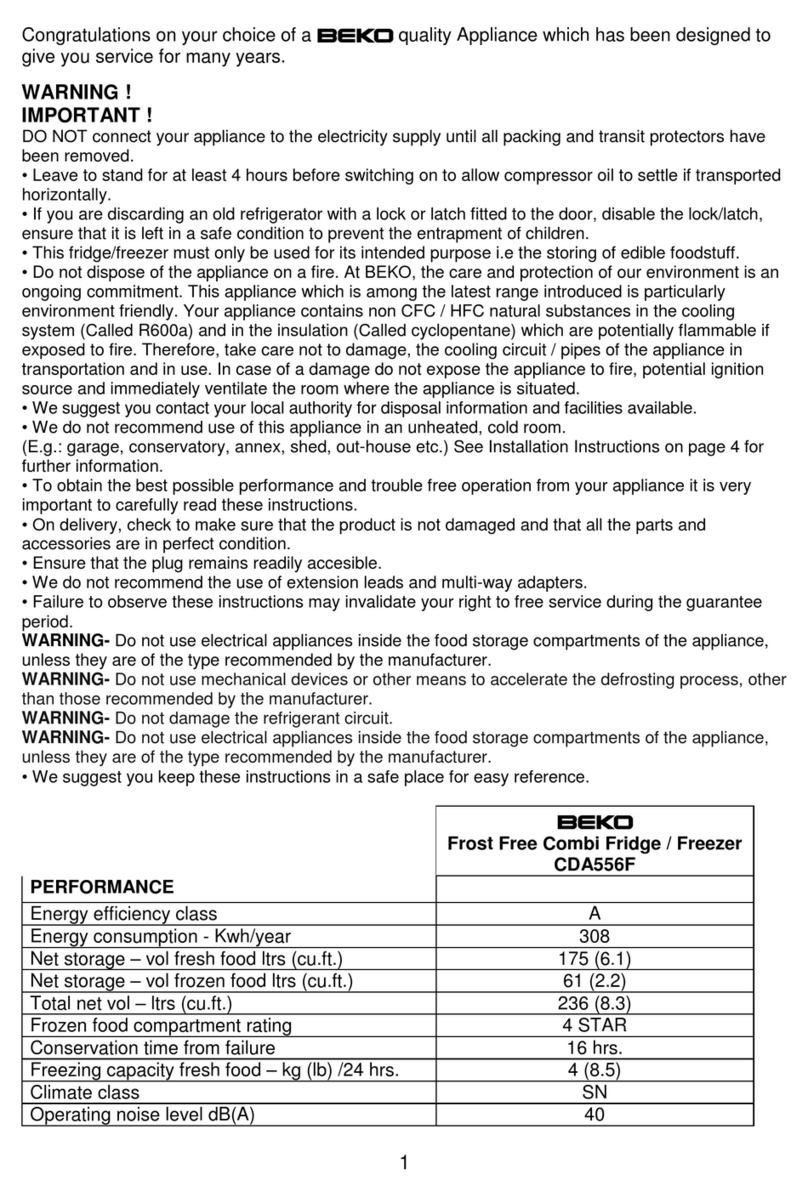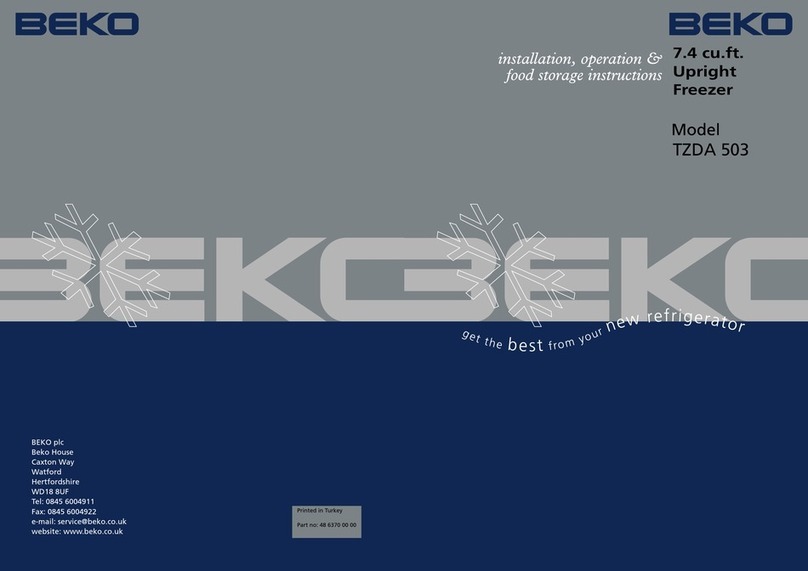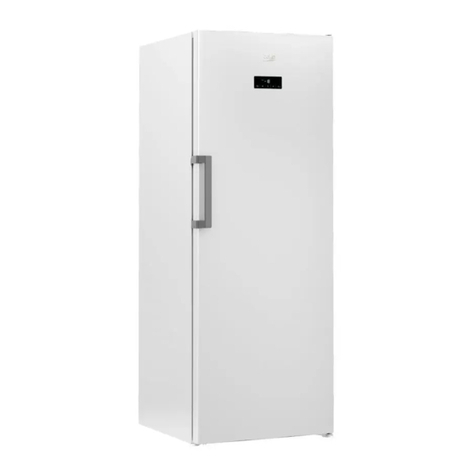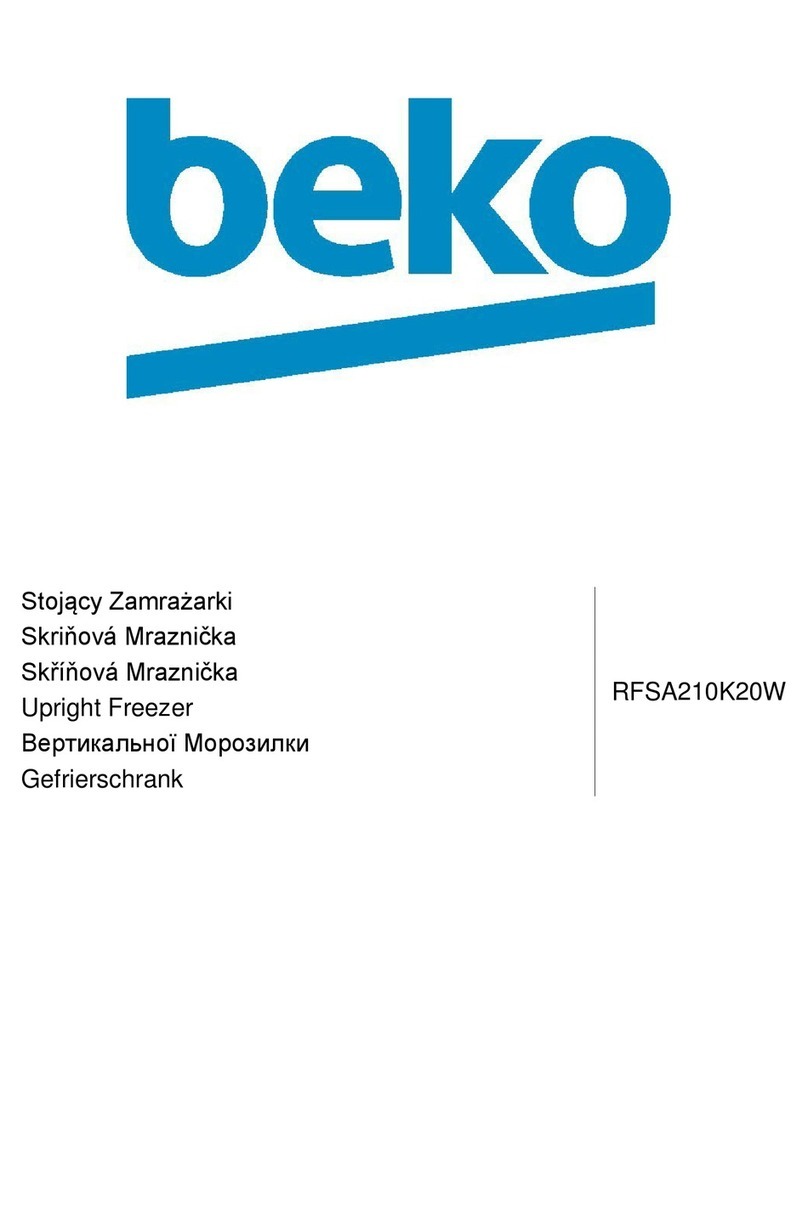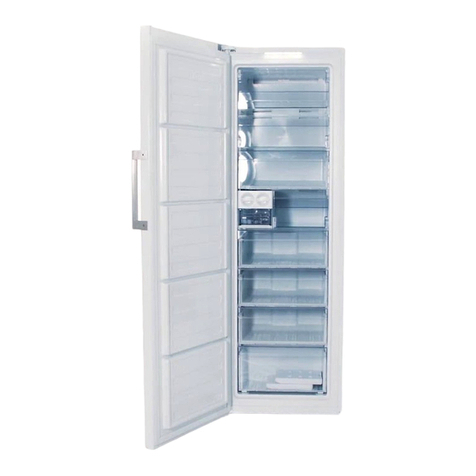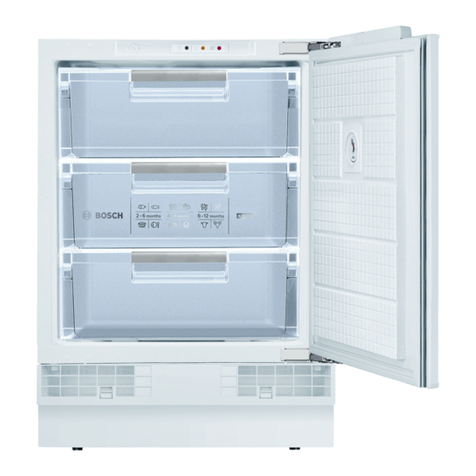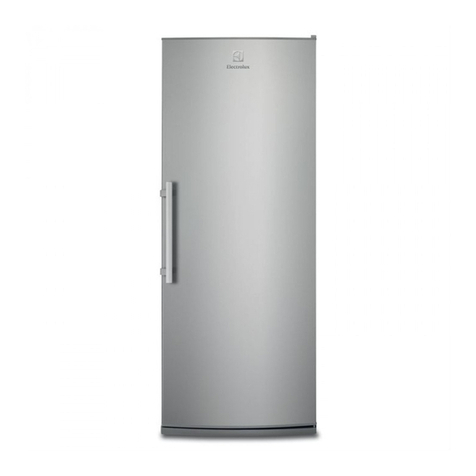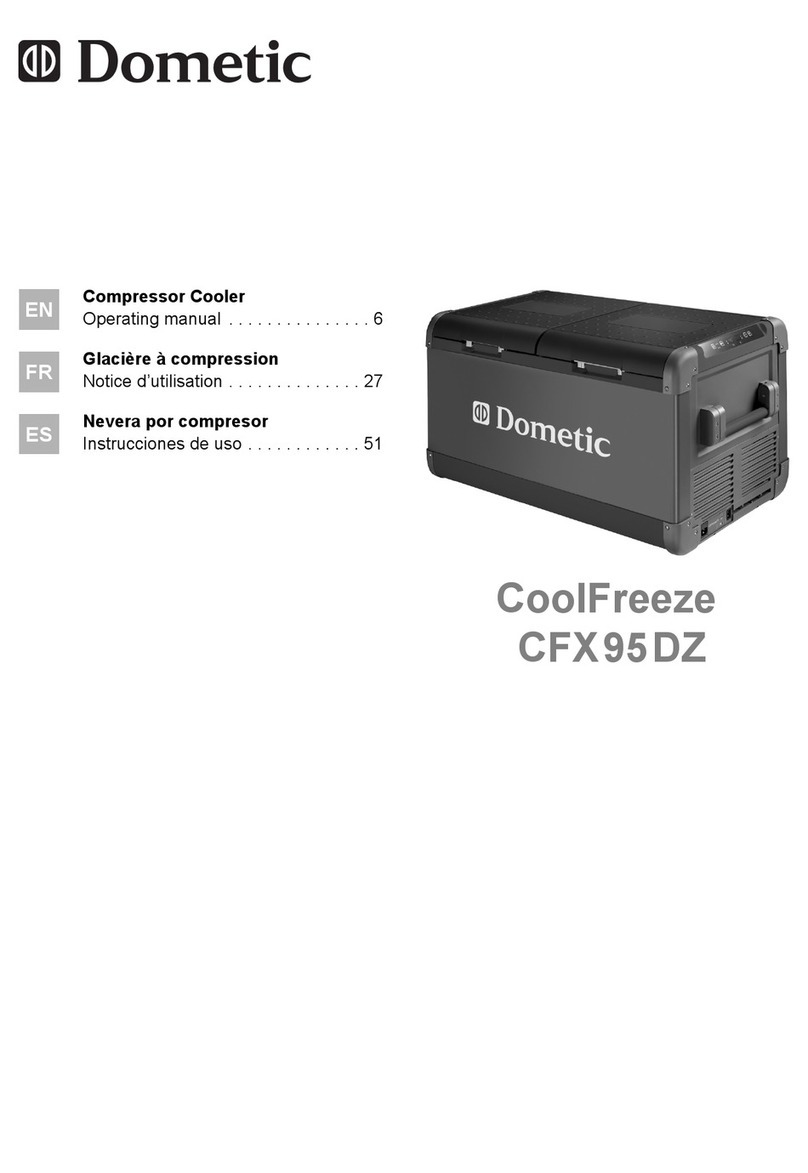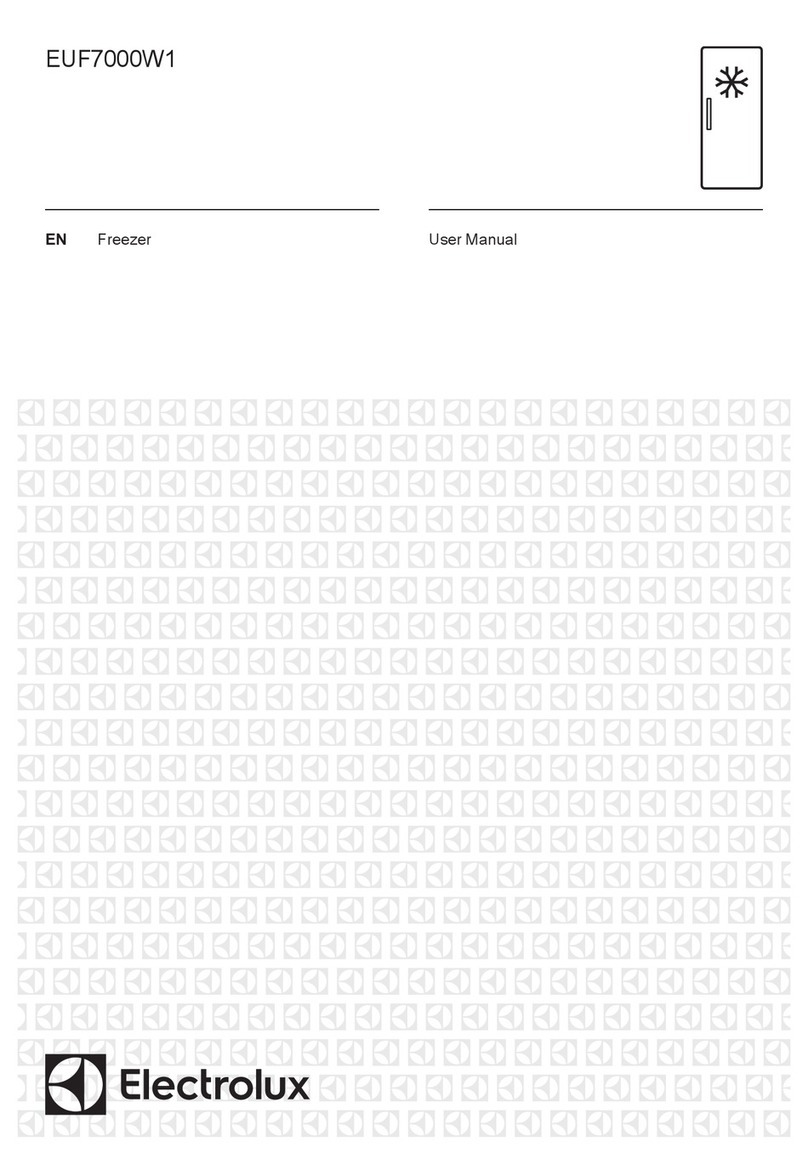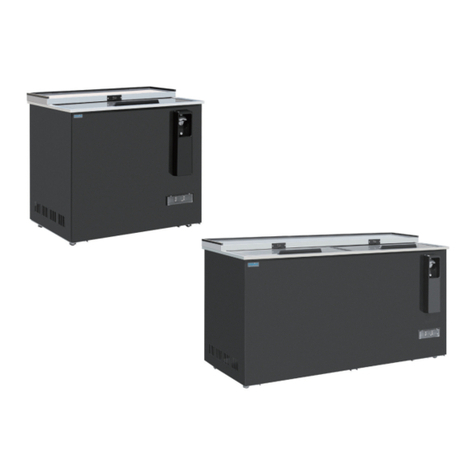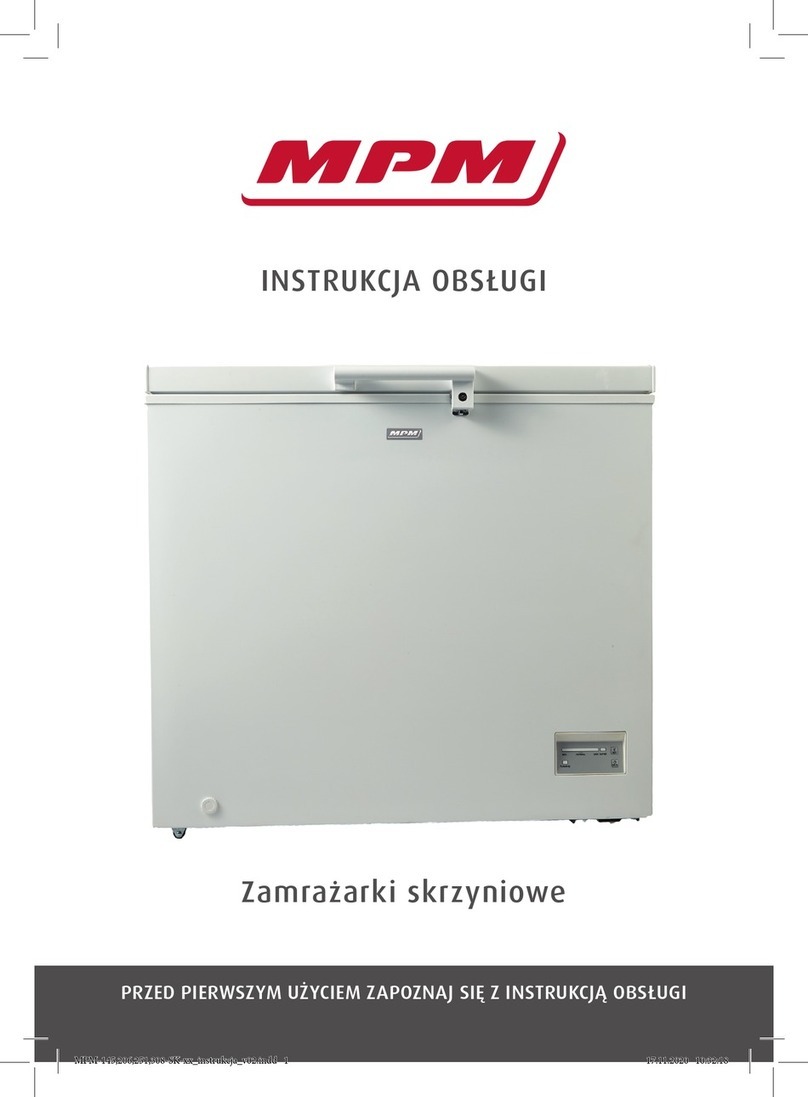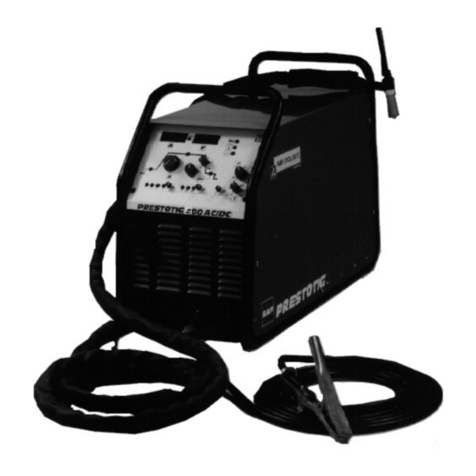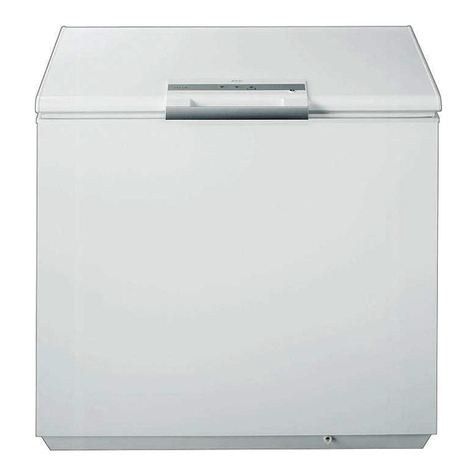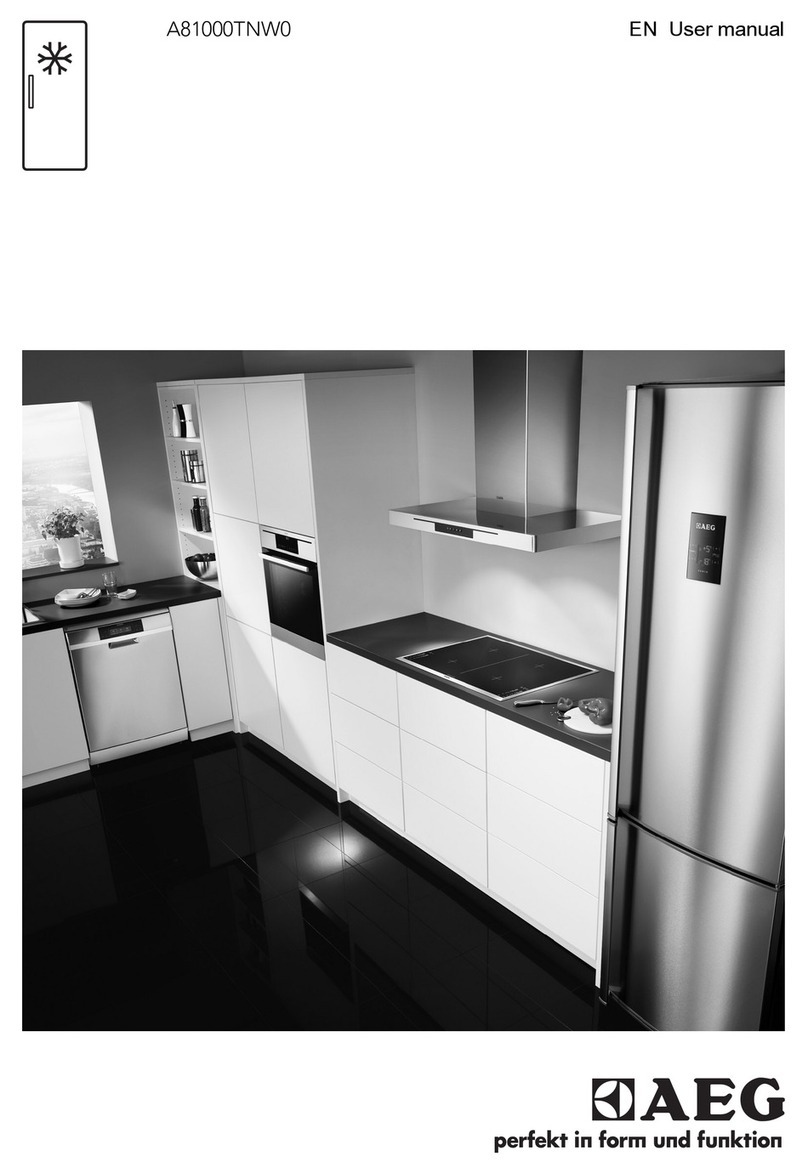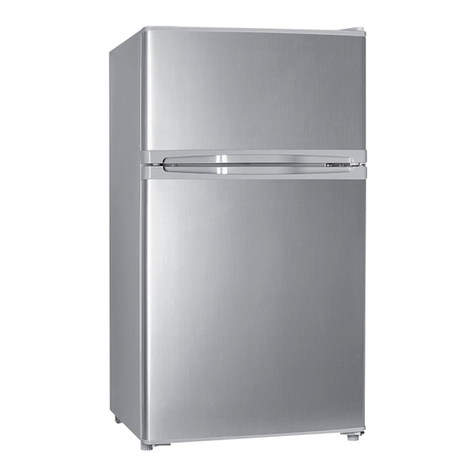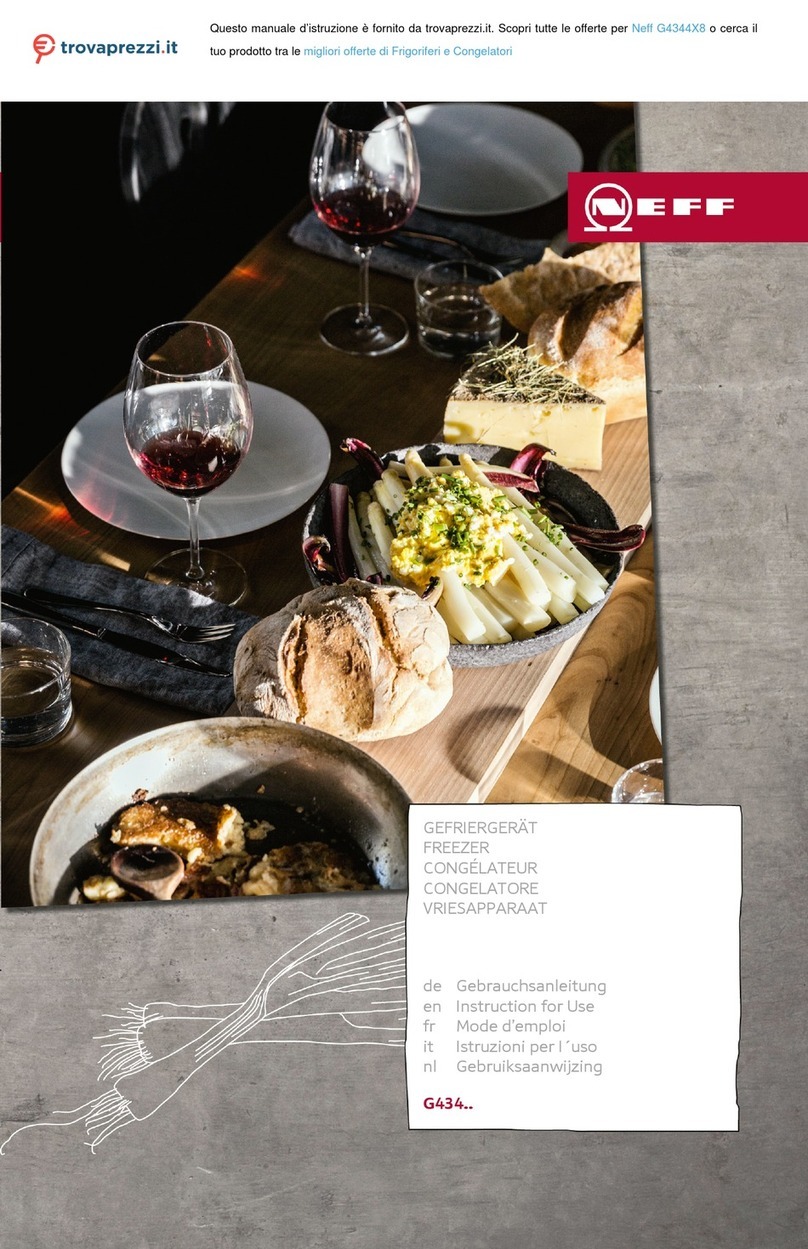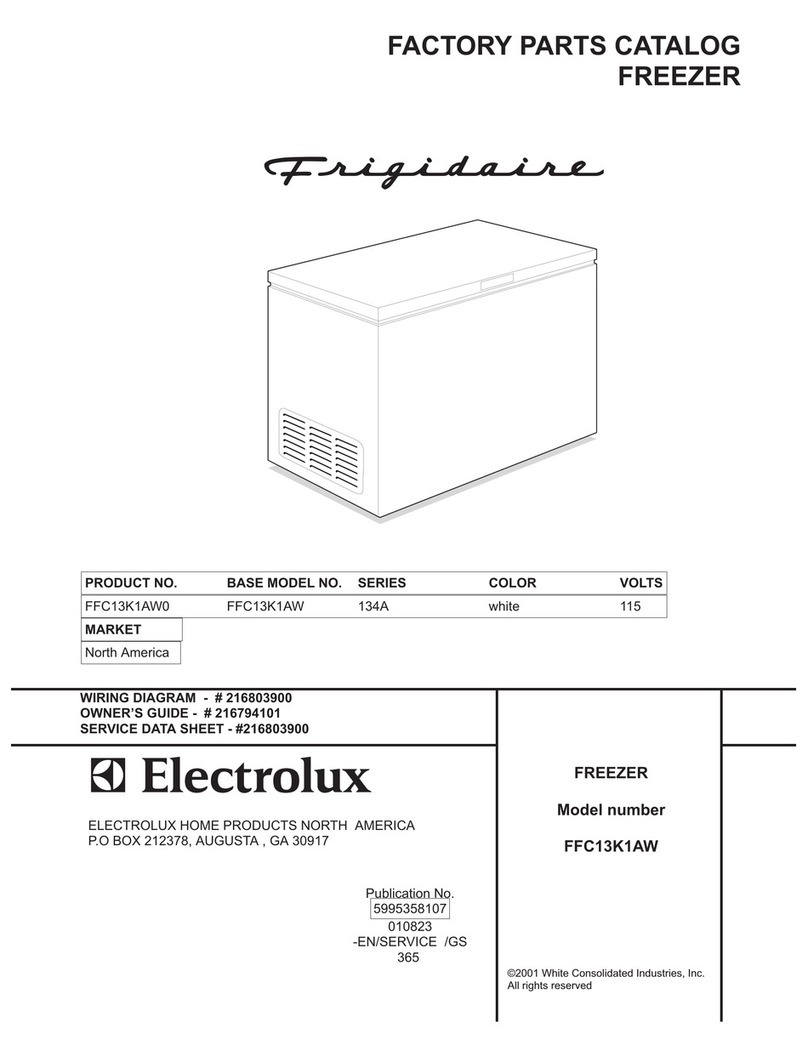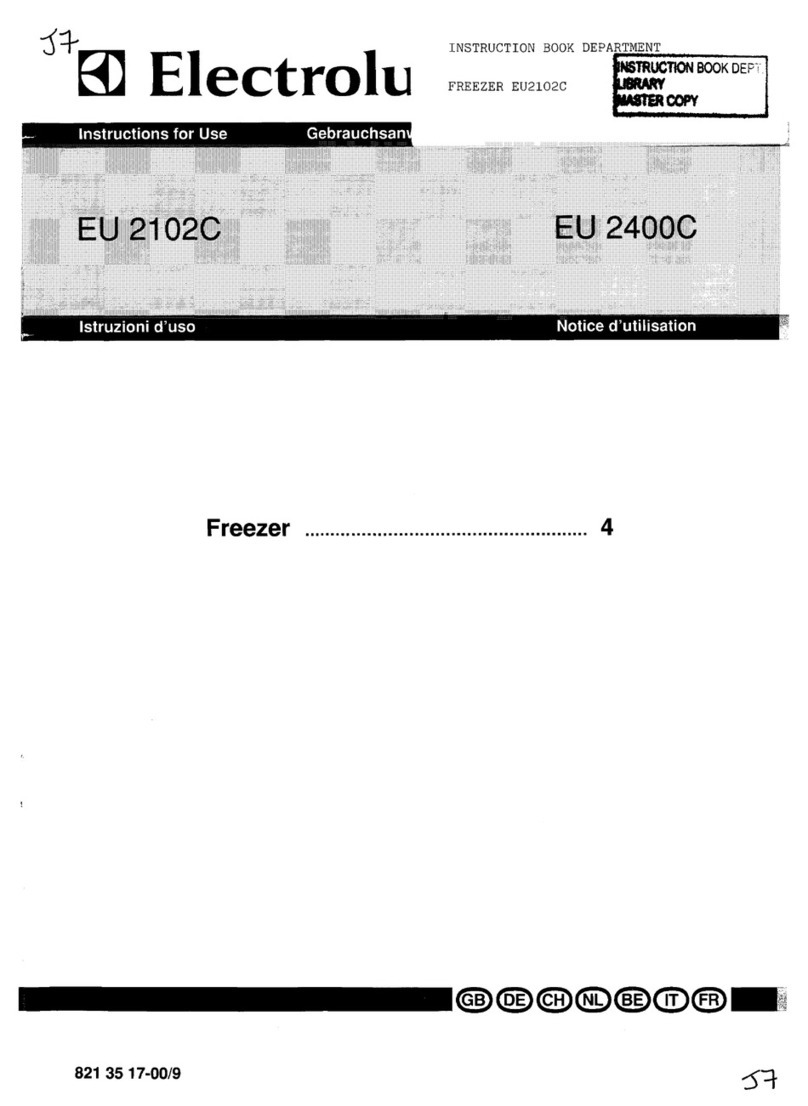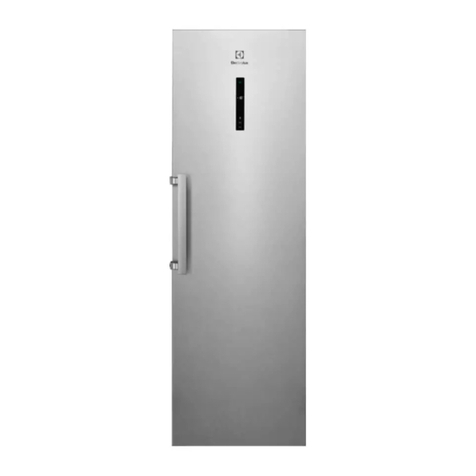
5 / 20 EN
Refrigerator/User Manual
Safety and environment instructions
Do not use steam or steamed
cleaning materials for cleaning
the refrigerator and melting the
ice inside. Steam may contact the
electrified areas and cause short
circuit or electric shock!
Do not wash the product by spraying
or pouring water on it! Danger of
electric shock!
In case of malfunction, do not use
the product, as it may cause electric
shock. Contact the authorised service
before doing anything.
Plug the product into an earthed
socket. Earthing must be done by a
qualified electrician.
If the product has LED type lighting,
contact the authorised service for
replacing or in case of any problem.
Do not touch frozen food with wet
hands! It may adhere to your hands!
Do not place liquids in bottles and
cans into the freezer compartment.
They may explode.
Place liquids in upright position after
tightly closing the lid.
Do not spray flammable substances
near the product, as it may burn or
explode.
Do not keep flammable materials and
products with flammable gas (sprays,
etc.) in the refrigerator.
Do not place containers holding
liquids on top of the product.
Splashing water on an electrified part
may cause electric shock and risk of
fire.
Exposing the product to rain, snow,
sunlight and wind will cause electrical
danger. When relocating the product,
do not pull by holding the door
handle. The handle may come off.
Take care to avoid trapping any part
of your hands or body in any of the
moving parts inside the product.
Do not step or lean on the door,
drawers and similar parts of the
refrigerator. This will cause the
product to fall down and cause
damage to the parts.
Take care not to trap the power cable.
When positioning the appliance,
ensure the supply cord is not trapped
or damaged.
Do not locate multiple portable
socket-outlets or portable power
supplies at the rear of the appliance.
Children aged from 3 to 8 years
are allowed to load and unload
refrigerating appliances.
To avoid contamination of food,
please respect the following
instructions:
Opening the door for long periods can
cause a significant increase of the
temperature in the
compartments of the appliance.
Clean regularly surfaces that can
come in contact with food and
accessible drainage systems.
Clean water tanks if they have not
been used for 48 h; flush the water
system connected to a water
supply if water has not been drawn
for 5 days.



